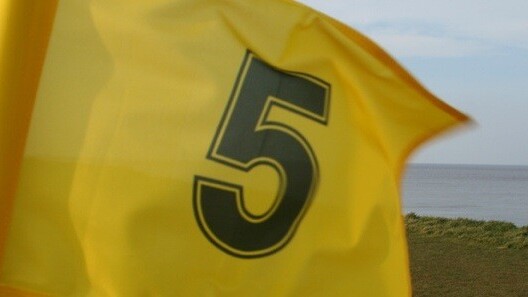
Editor’s note: This is a guest post by Gonzo Arzuaga. Gonzo is a passionate internet entrepreneur who has been doing business online since 1996. He has lived in five countries, speaks five languages and has published five books. His goal is to be a motivational speaker. Loves quotes, writing and reading. In 2007 he started KillerStartups.com: ‘Where Internet Entrepreneurs Are The Stars’.
We acquired the domain name Startups.com a few years back. We briefly tried a Q&A site for entrepreneurs and startups, but that didn’t work out. Then last year we decided to launch Startups.com as a daily deal site for webpreneurs. After one year we had to pull the plug.
This post is my personal reflection on what went wrong. The paint is still fresh, and I’m still a bit sore with the pain of failure on my shoulders… but it’s not the first one in my entrepreneurial life. I am moving beyond it and focusing on what I’m really passionate about.
Genius former chess champion Garry Kasparov said something to the effect of, “I have always learned something from the games I lose that helps me become victorious in the next game.” I am trying to adopt that attitude by offering this reflection upon what went wrong with Startups.com in the hopes that it will help other entrepreneurs.
Lesson 1. Do your thing
Money follows passion, not the other way around. It’s almost impossible to have a great vision for something you if you don’t have the passion for it. But as Sam Walton put it simply, “Capital isn’t scarce; vision is.”
Do your thing, and don’t let other people (or things) distract you from your own path. It’s very hard to do when you read over and over again that Groupon is kicking ass, or how Instagram was an overnight success (which was hardly “overnight” when you scratch the surface of the people involved).
Temptation is everywhere, but you know what? I came to realize that temptations are only tempting when you’re not doing your own thing. If it’s truly YOUR thing and something you’re passionate about, hardly anything can get you more excited than what you’re already doing.
Clearly selling isn’t our thing, publishing is. Publishing attractive and inspiring content to help webpreneurs become more successful. We thought we could also help webpreneurs with deals. Wrong call. Publishing is one thing, and selling is something very different. It involves customer service 24×7, lead generation, funnels, merchants, refunds, and a huge list of etceteras.
Follow your passion, do your own thing, and don’t let distractions and what may seem like bigger opportunities distract you from YOUR thing. If you get distracted, it means you haven’t found your thing just yet… but that’s okay. Just keep looking.
My key takeaway from this is: Don’t chase the new flavor of the month, because it’ll surely become “yesterday’s online fad” as Seth Godin discussed in his awesome post about, “How To Make Money Online.”
Takeaway #1: Just do your own thing, keep your head down, and hussle.
Lesson 2. There are no shortcuts
From afar, your neighbor’s greener pasture looks very nice (and much greener!) That happens here on The Next Web as well, when we read about the latest startup to getting funding, or the biggest acquisition this week.
You are not your neighbor. Be yourself, and stick to it no matter how long it takes you. You wanna be doing all of the latest, greatest things, because from afar, nothing looks complicated. But again, execution is what counts, and that’s what makes the difference at the end of the day.
At Startups.com we decided to take a little shortcut and we bought a script for a daily deal site. We wanted to move fast and cut corners everywhere we could. In retrospect, it doesn’t seem to have been the right decision. It took us five months to get where we wanted to be.
One day it struck me: if we had built it from scratch, we’d have done it in 3 months, and it would have been our own fine and dandy, shiny product. Instead we ended up creating Frankenstein. No one had ownership of the beast, and it never worked as well as we had wanted.
Don’t get me wrong, we’re all for open source stuff like WordPress, MySQL, and PHP. I’m not talking about reinventing the wheel here…
I love the story of a butterfly. A good-hearted man saw a butterfly struggling to emerge from its cocoon, and he very gently took scissors and cut open the cocoon, “so the butterfly could get out easier.” Well, it ends up that although he had the best of intentions, a butterfly actually NEEDS to struggle to break its cocoon so it can develop the strength to fly.
Think about the struggles you’re going through with your own startup. Don’t always take the easy path, because you too are developing your skills to become wildly successful. Think of the biggest companies around: Amazon, Apple, Google, Facebook… do they look like a result of a shortcut to you? No. Not by a long shot.
Takeaway #2: The road to success is long, no matter what they say. If you can’t stand it, just think of the alternative: Get a “regular” job, and the road to success will become… infinite.
Lesson 3. Do one thing
Marketplaces are very tough, and daily deal sites are even tougher. The jury is still out about the daily deal sites: are they just a fad, or are they here to stay for the long run like webmail, apps, etc?
Seen from afar, the daily deal opportunity seems pretty easy, but it really isn’t.
In any marketplace, you have to build two sides of the equation at the same time: buyers and sellers. Without the sellers, buyers who come to the site leave right away because they find nothing to buy. Without the buyers, the very early sellers don’t get their merchandise sold, so the ball stops right there: they don’t promote it to their friends, and they never comes back to offer another product.
Marketplaces normally take a long time until they hit the mainstream, like Etsy did a while back.
At the company, besides running Startups.com we were running KillerStartups.com and a bunch of other initiatives that I’m too embarrassed to share with you here. What can you expect from that? Multiple successes? Hardly. We all face limited resources, budget, people, and energy… We have to admit it, and do just one thing. And excel at it. The world is uber-competitive now, if you’re not amongst the best at what you do, most probably you’re not gonna get anywhere.
Every time an entrepreneur reaches out to me for advice, I tell them the story of when I was a little, 8-year-old boy. At school they taught us how to light a piece of paper on fire with a magnifying glass. You let the sun shine through the glass, and voila! Fire. But in reality, it’s not that easy, because the critical factor is that you stick with it long enough that the little piece of paper lights on fire.
Well, what did that 8-year-old me try to do? Burn 4 different little pieces of papers at the same time. A little bit of magnifying glass time to each of them. What did I get? Nothing. Later in life I realized that if I want to burn 4 different pieces of paper, I need to stick with the first one long enough until it’s on fire. Then I can use that piece to light the next 3 pieces on fire. Simple, but it’s not always easy to stick with that very first piece long enough.
Takeaway #3: Do one thing, no matter how small. When you have it burning, you can make it bigger, better, faster and stronger… later.
Lesson 4. Know when to fold up your tent and go home
It’s very hard, and there’s no winning recipe for it, unfortunately. And you’ll never know for sure if you did the right thing, or if you screwed it up big time by throwing in the towel. I wish there was an easy way to know for certain if quitting is the best option. Actually, maybe there is… If you’re quitting a project to focus your time, energy and limited resources into something you really believe in, then you’re on the right track.
It’s even harder when you read the Steve Jobs’s quote, “The problem with the Internet startup craze isn’t that too many people are starting companies; it’s that too many people aren’t sticking with it.”
Argh! Painful. Keeps you awake at night and makes you think harder and harder, not to mention adding even more stress to your decision process. But still, you need to move forward, and if you feel you’re going nowhere, maybe shutting down is the best thing to do. Or pivot the same project.
But sometimes you need to kill the old to give room for the new to be born. Sometimes the right solution is pivoting, like what Odeo did when they refocused on Twitter. Or what Catherina Fake did with Flickr.
At Startups.com we were 6 months down the road and we realized it wasn’t working. We couldn’t make it work. Our passion wasn’t in selling, but in publishing. Felix Dennis, founder of Maxim magazine, found that out as well when Maxim tried to approach the catalog business. It wasn’t working for them either. They brought in a consultant who told them point blank, “You’re not creating a sales catalog, you’re just doing a magazine.” And then it hit them: their publishing experience was playing a bad trick on them.
We’re no quitters, so after 6 months we decided to give it our all and 6 months later look at where we were at. Seeing it in retrospect now, it was 6 months too long. Wasted resources, wasted time. The writing was on the wall. But we decided to persevere, on the wrong path, so we lost more money, resources, and lost opportunities doing something else. We should have folded 6 months ago rather than keep going and going for an extra 6 months… in the wrong direction. Lesson learned, but a very personal call. Pretty hard to pass those learnings along, you’ll have to make your own calls.
Life goes on to live another day. And another project comes up to fire up your belly and you go full force into it. That’s what we entrepreneurs do.
Takeaway #4: It’s very hard to time the end of a project… when that one isn’t working. How would you know if a project is working? Easy: you’ll be happy (yes, despite the never-ending challenges). As simple as that.
Lesson 5. Focus, execution and details
Boring? You bet. But these 3, by far, are the ones I find the hardest things for us entrepreneurs to do. Really. We’re full of ideas, we want to change the world every minute. Wherever we look, we see opportunities. Tons of them. And most of the time, they’re better looking, larger, more interesting, appealing and exciting than the one we’re busy dealing with.
At the ‘idea stage,’ everything seems possible, so unlimited thinking is great. That’s romance, without the hassle of actually doing it. But when rubber meets the road, that’s when things get tough, and romance goes to the toilet. An angry customer on the phone; your site is suddenly painfully slow; you get flagged on PayPal for transactions. A critical employee called in sick. Tons of unanswered emails. Disappointing sales that day. The email server is having issues and you can’t deliver the emails to your subscribers. That gets to your co-founder’s head and instead of a dialog to work things through, you start fighting.
Well, you get the picture… I wasn’t talking about your company, I was sharing and venting some of the things that I’ve experienced..
Our own personality is sometimes our worst enemy. We need to constantly keep fighting that, every single day.
At Startups.com we got enamored with the idea of Daily Deals, but not passionate about the execution and the details of the entire beast. Others did much better than we did, obviously they had the expertise, vision, passion and willingness to make it work, and dive into the details. We didn’t. And it showed, big time.
Takeaway #5: Keep working at your only thing, until you find love in the details. As they say, the devil is in the details (and so is success).
Closing thought: I took something I read from Internet entrepreneur Jason Calacanis when I emailed Noah Kagan at AppSumo to say: “You win. We lost. Next.” The day you stop thinking, “there’s still something I could do,” you might just be dead. And dead we’re not. Let’s go full speed ahead, and make it possible.
Image credit: .martin
Get the TNW newsletter
Get the most important tech news in your inbox each week.





